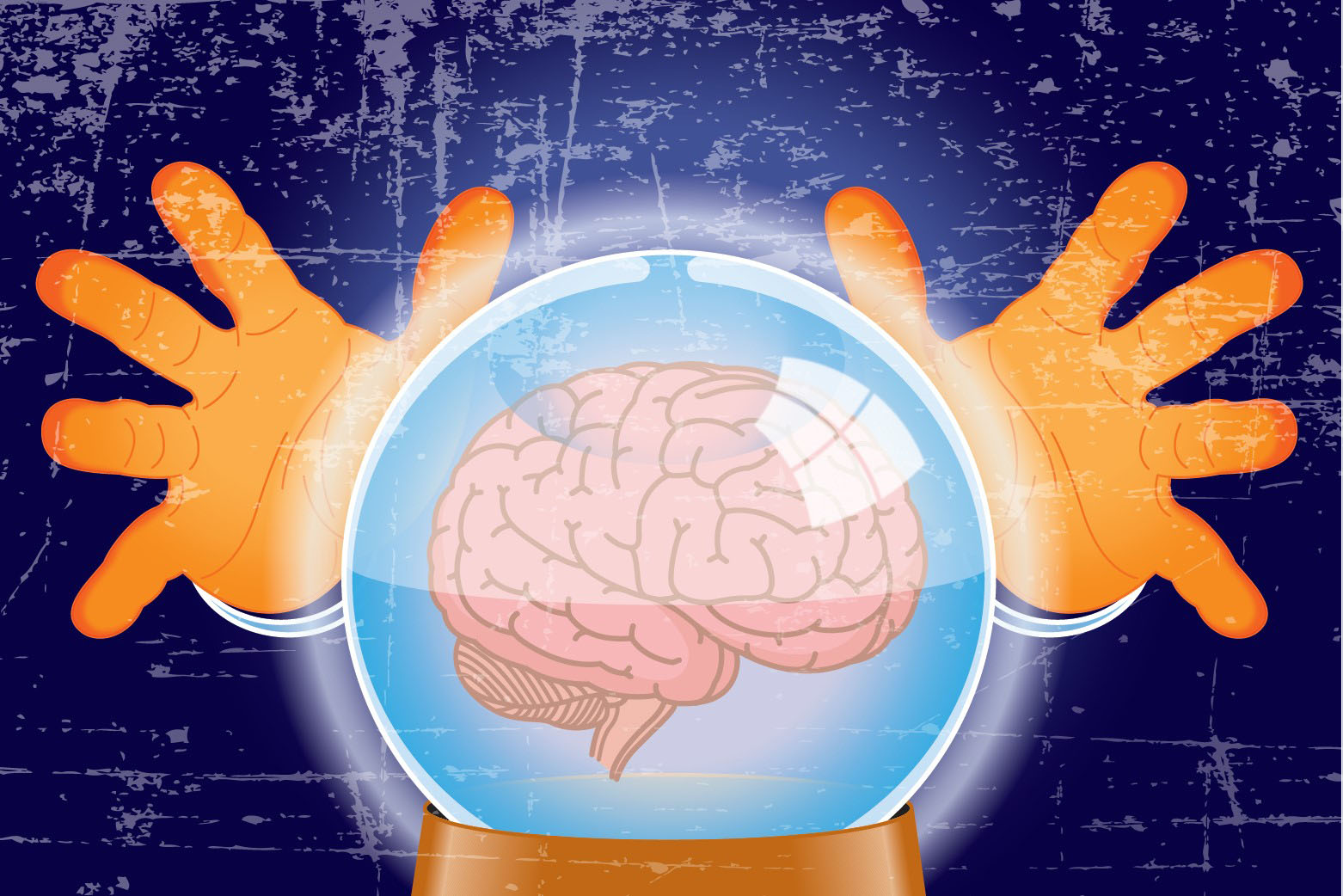
Illustration by Marcia Staimer
Let’s say you’ve been asked to head up an important project at work. You envision it requiring long hours and stressful meetings, opening the door to mistakes and criticism and possible failure. Based on this prediction about how the assignment will make you feel, you turn it down.
This is the general idea behind “affective forecasting,” and it can impact how we decide, learn and perform, especially in the workplace.
George Mason University psychology professor Seth Kaplan has been awarded a $233,399 grant from the U.S. Department of the Army to examine not only how people predict their future emotional states, but how accurate these predictions are and what impact they can have.
Kaplan’s study, “Affective Forecasting Errors: Implications for Individual Learning and Performance,” takes a close look at the decisions we make based on our emotions—whether accurate or not—when choosing, planning and preparing for activities.
Kaplan is working on the study with co-investigator Jill Bradley-Geist at the University of Colorado at Colorado Springs, along with Mason psychology professors Lauren Kuykendall and Jose Cortina, and Mason graduate students in industrial/organizational psychology.
The series of four studies is meant to uncover how being incorrect with our forecasts can lead to poor decisions. That project you turned down, for instance, could have boosted your prestige at work, provided the chance to learn new things, expanded your skills and allowed you to revel in the satisfaction of a job well done.
“How would you feel if you won the lottery?” Kaplan explained. “Or if you or someone close to you was diagnosed with a serious illness? How will you feel when you go on vacation in a few months? The decisions we make are driven by the emotions and feelings those decisions will lead to.”
The study begins with having people mull over different events they experience at work and to make predictions about how these events will turn out.
“We have people think about how they tend to feel when, say, meeting with a supervisor. Then, when those events occur, we ask them to describe, in the moment, how they actually do feel,” he said.
This will uncover what types of events people are more accurate at predicting, and which people may be more accurate than others.
“What are the implications of being more accurate?” Kaplan said. “Do people not put themselves in situations that may ultimately be beneficial because they’re worried it’s going to be an aversive situation? If we find that accuracy or inaccuracy matters, we can develop some sort of intervention or training to improve the accuracy of these forecasts.”
To get a cross-section of individuals, the team will study Mason employees as well as those in the community at large, using surveys and sampling methodology, and meeting with participants face-to-face.
The Army Research Institute is funding the three-year study, and Kaplan believes the research has the potential to benefit both the Army and civilian workforce by helping individuals better choose and emotionally prepare for upcoming work-related events.
“For example, the research hopefully can provide soldiers with appropriate and adaptive affective expectations before beginning deployments,” he said, “and help workers more generally with challenging conversations and assignments.”
